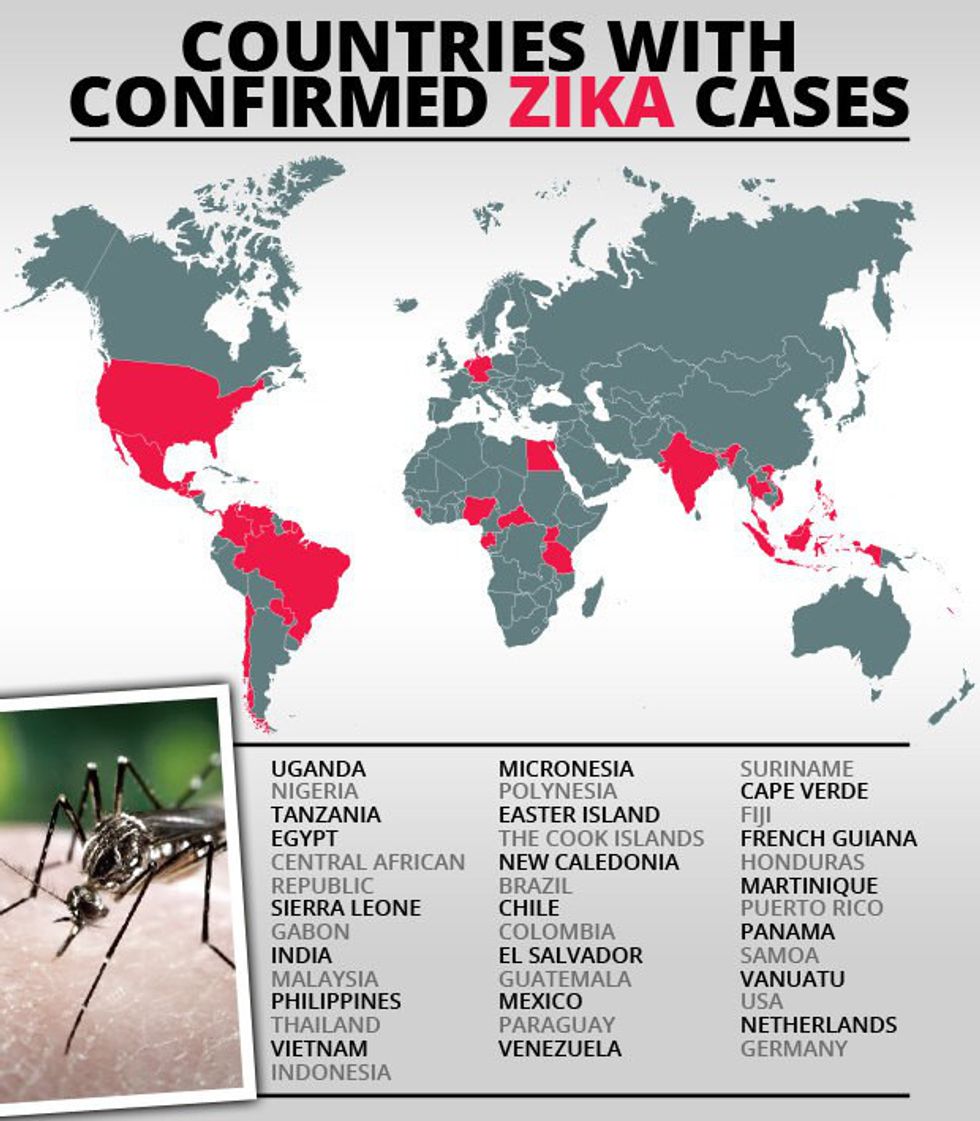Soon, college kids across the country will be going on their long-awaited spring breaks. Some kids will be returning home to their families, but a large portion of young adults will be headed to an exotic, beachy vacation. Whether it's Mexico, Miami, or maybe an island, students have yet another thing to add to their list of concerns when traveling: the Zika virus.
As soon as anyone mentions the Zika virus on the news or in the paper, the content is almost always accompanied with images of babies with deformed heads. When these articles and news briefs are skimmed over by college kids, they often just assume that this virus only affects pregnant women and infants.
We know for sure that the Zika virus is spread through bites from infected mosquitoes. It is also spread from mother to child. But, what a lot of people don't know is that the virus might also be spread through sexual contact and infected blood.
Students going to tropical regions for their spring break vacations should be on the lookout for mosquitoes. Bring lots of bug spray, or even wear long sleeves and pants when near standing sources of water, like ponds or lakes.
More importantly, students have to remember to engage in safe, protected sex. Medical professionals are still unsure of the specifics of how the virus is spread through sexual contact, but it's much better to be safe than sorry.
The CDC is even advising women to ask their medical professionals if it is alright to travel to areas in South and Central America. The CDC is unsure how long the virus can live inside it's host. As of right now, they say that if bitten by a mosquito and after showing symptoms, a person could be free of the virus in 20 or so days. However, they're worried that a woman can still be infected with the virus years later when she is trying to get pregnant, and some countries, like San Salvador and Brasil, are advising women to wait to become pregnant as to avoid developmental issues.
So, in other words, if you're a college senior roughly 22 years old, you could potentially still be carrying the virus five years later, when you're 27, and, potentially, trying to start a family.
When mothers pass on the virus to their children, the babies can be born with microcephaly. This is when the baby's head is significantly smaller than the average baby's. This leads to developmental issues, and brain damage.
While on vacation or after returning home, students should keep an eye out for some tell-tale symptoms that they've been infected with the virus.
If you experience a fever, joint pains, rash, or red eyes, contact a doctor immediately. It's very unlikely that the virus will result in death, but it is critical to stop the spread of it.
Also, it is important to remember that you can be infected with the virus, but just not show symptoms. According to the CDC, only 1 in 5 of those infected will experience symptoms.
By no means do you have to cancel your vacation plans. Just make sure to have lots of bug spray, and to practice safe habits while also having fun. Remember to stay safe this spring break!





















